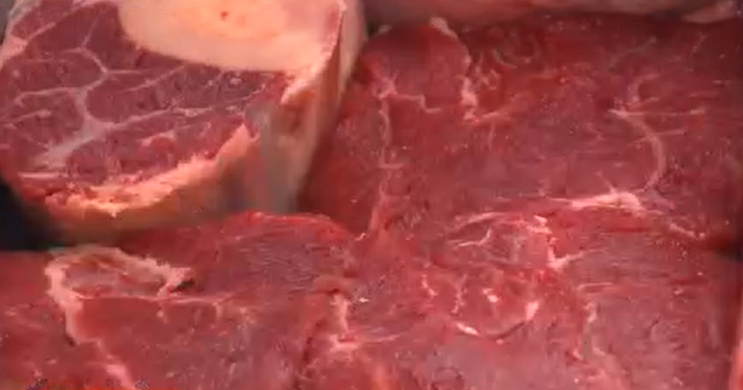
Maryland cattle farmers say they would rather see the federal government invest in the American beef producers instead of importing meat from other countries.
President Trump recently announced a plan that he says would cut record beef prices by importing from Argentina.
Jessica Williamson, a cattle farmer in Allegany County, Maryland, told WJZ that a move like that would dramatically hurt beef producers in the United States.
“Right now, the United States beef supply gets most of its supply from Argentina,” Williamson said. “If we were to increase that by two or three more percent, it would not dramatically increase the price in the stores, but it would dramatically hurt the beef producers in the United States.”
Mr. Trump defended his decision, posting on social media about his record with cattle ranchers. He said his tariffs helped protect those farmers, but acknowledged the price of beef has to come down.
Record-low cattle production in U.S.
Williamson said that one of the reasons beef is rising in grocery stores started with record-breaking liquidations of herd sizes and herd numbers from 2019 through 2022.
Then, she said there were high input costs, droughts, and the inability to generate profits.
“What that caused was, if not full liquidation, a need for them to liquidate some of their herd, so that they could generate some of their sustainability for their farming operation,” Williamson said.
Now, she said, many cattle farmers across the country are trying to keep up with the market, and record-low numbers of cattle production in the United States.
“It’s really this compounding issue of extremely low numbers of our herd across the nation, along with extremely high input costs,” Williamson said.
What is driving the increase in beef cost?
Williamson told WJZ that importing meat from Argentina wouldn’t drastically lower prices in grocery stores, but it would have a big impact on the United States’ farmers.
“We would need to import so much beef from Argentina to really feel the very significant effects of cost reduction in the grocery store,” Williamson said. “It would really not take that much importing of beef for the cattle producers to be hurt significantly.”
According to CBS News, agricultural economists say Argentine beef accounts for such a small slice of beef imports — only about 2% — that even doubling that wouldn’t change prices much.
There are several factors that have led to increased beef prices, including continued strong demand combined with the smallest U.S. herd size since 1961, CBS News reports.
According to CBS News, beef imports are down overall because of the 50% tariffs that Mr. Trump imposed on Brazil, a big beef exporter, and limits on Mexico, where the country is fighting a flesh-eating pest.
Kansas State University agricultural economist Glynn Tonsor said Argentina can’t produce enough beef to offset those other losses of imports, CBS News reports.
The United States has imported 72.5 million pounds of Argentine beef while producing more than 15 billion pounds of beef, through July, according to CBS News.
Much of what is imported is lean beef trimmings that meatpackers mix with fattier beef produced in the United States to produce the varieties of ground beef that domestic consumers want, so any change in imports would affect primarily hamburger. Steak prices that were averaging $12.22 per pound probably wouldn’t change much, according to CBS News.




